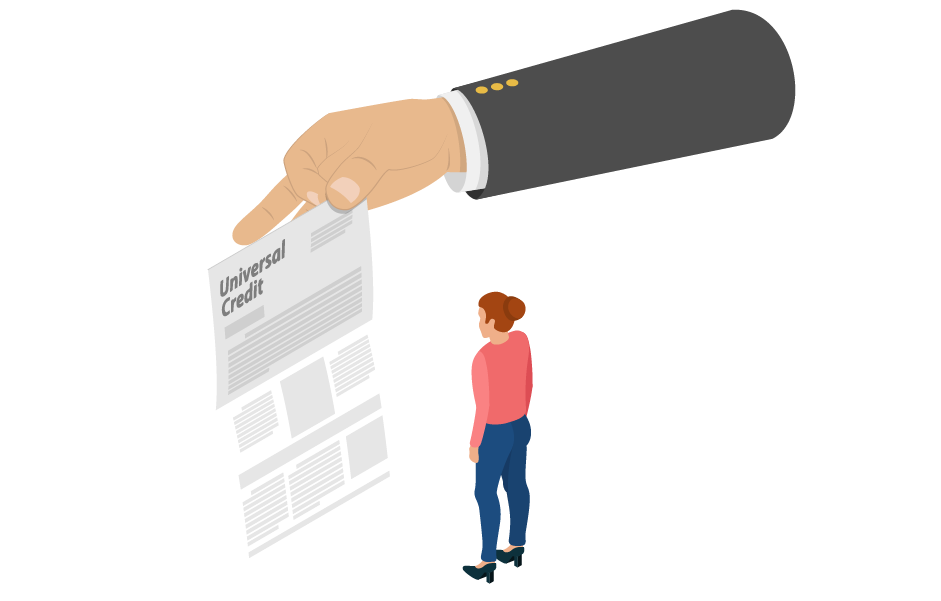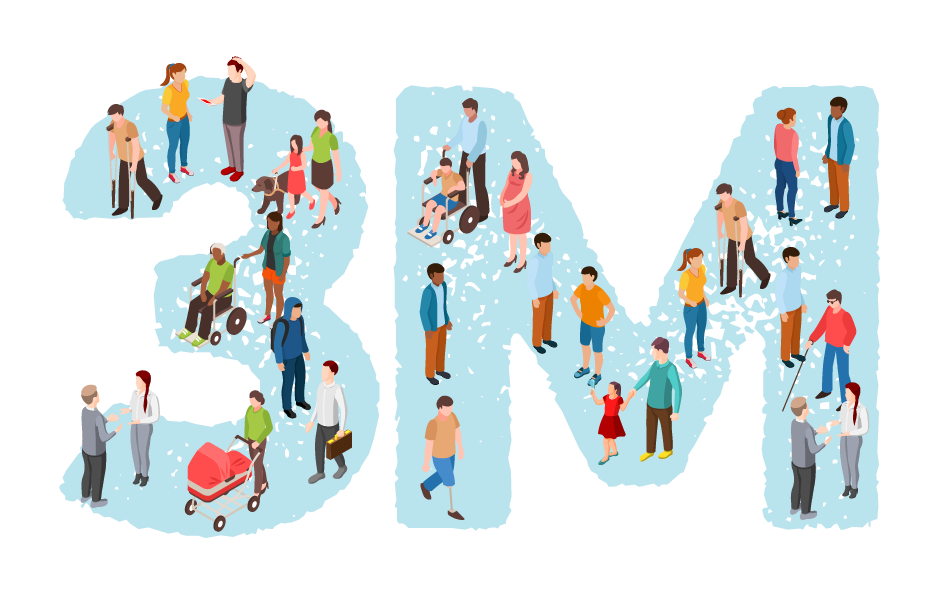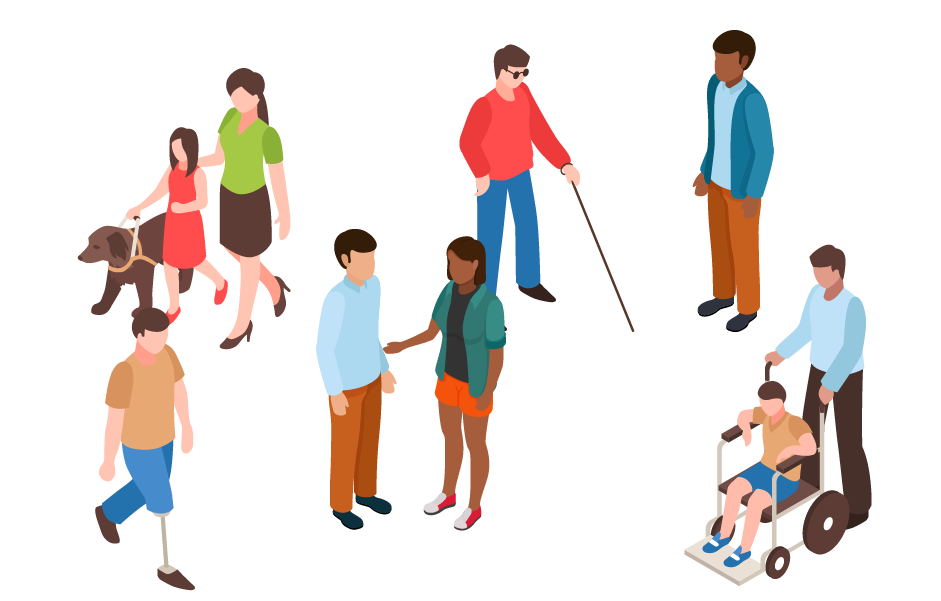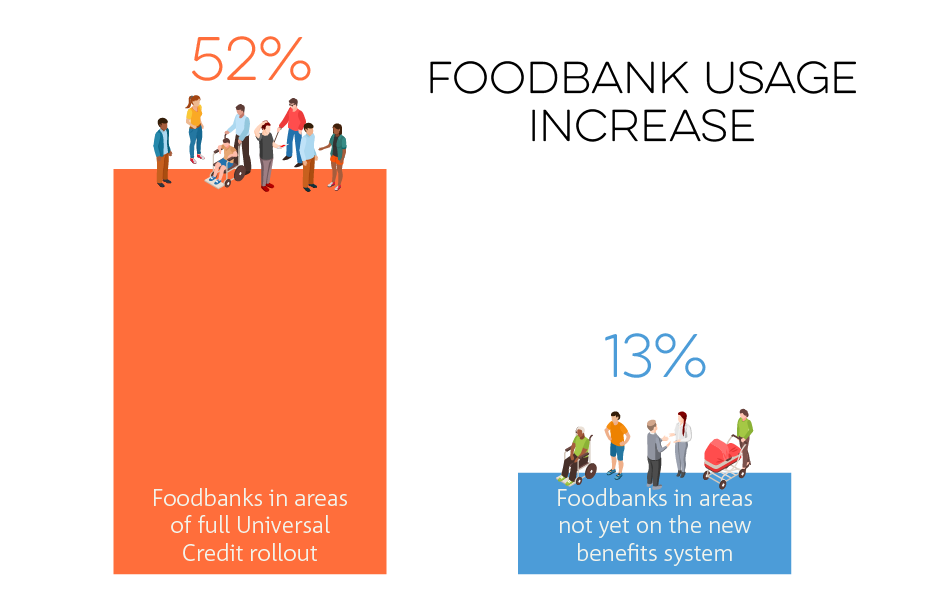
The next stage of Universal Credit
What does it mean and why are we worried?
#5WeeksTooLong
The five week wait for Universal Credit is forcing people to food banks - you can help end it.
Join the campaignThe new benefit system must be ready to give proper support
We’re a country that prides itself on making sure proper support is in place for each other whenever help’s most needed – if Universal Credit is to continue that legacy, we need it to be ready for anyone who might need its help.
We’re rightly proud in the UK of the systems we’ve created to protect each other. Our commitment to the NHS shows we don’t just talk about caring for each other, we take action to ensure that help is available to any of us whenever it’s most needed. Similarly, the foundations of our benefits system demonstrate not only that we’re a country that believes no one should be left without enough money for essentials like food, but that we put those principles into practice.
Universal Credit should be the next stage of this tradition. The new benefits system sees six different types of benefit payment rolled into one, so many of us are likely to need its invaluable support at some point in our lives: if we ever need help with making ends meet through what previously would have been child tax credits, housing benefit, or working tax credits; or to make sure we have enough money whilst we’re looking for a job or living with a health condition or disability.


Three million of us will have our benefits stopped
Until now, only people making a new application have gone onto Universal Credit. Soon the three million people receiving benefits or tax credits under the old system will get a letter telling them their benefits will be stopped and they need to reapply for support.
The Department for Work & Pensions has published an initial plan about how this next stage of Universal Credit could look, and by the end of October 2018 they will have made a final decision on exactly what the process will look like.
We’re really worried that if the next stage of Universal Credit goes ahead in the way the Department for Work & Pensions has planned so far, we could see a big increase in people being referred to food banks for emergency support.
People with health conditions or disabilities will be forced to apply
Many people who will be moving onto Universal Credit receive benefits because of a severe health condition or disability. We know they’re already more at risk of needing a food bank’s help.
Because of the kind of benefits being rolled into Universal Credit, thousands of people with severe disabilities and physical or mental health conditions will be told they should make a new application.
We know people with a health condition or disability are more at risk of needing a food bank’s help, so as more and more people with severe health conditions apply for Universal Credit, we’re worried there could be a repeat of all the issues people at food banks have already experienced, on a much larger scale.


The new benefits system is already pushing people into food banks
We’ve already seen serious problems with Universal Credit. If it goes ahead as planned, we’re really worried we’ll see a big increase in people being referred to food banks.
At the Trussell Trust we’ve been working closely with our network of food banks across the UK to monitor what happens on the frontline when people apply for Universal Credit in an area. We’re supportive of the principles underpinning the new benefits system – ensuring work pays and simplifying the complicated old benefits system makes sense. We had hoped to see a drop in referrals to food banks for emergency food in areas as it rolled out.
Instead, we’ve seen a 52% average increase in food bank use in areas that have had Universal Credit for 12 months compared to 13% in areas that have not. We know Universal Credit is not the only issue driving an increase in food bank use, but it’s a significant factor in many areas.
Sending letters isn’t good enough - the Government needs to take responsibility
The Government must ensure no one is left with a gap in their income when they move onto Universal Credit. We know the problems people are likely to face if they’re just sent a letter, so let’s act before the next stage begins.
Food banks see first-hand the impact on people when there’s an issue with the new system: families facing eviction, parents skipping meals and people in insecure work struggling to afford the bus fare to work. The five-week wait for a first payment, the lack of available support to apply online, the inability of payments to cover the cost of living for people who need it most, and poor administration are some of the key issues people are facing.
So sending letters isn’t good enough. To protect people from ever needing a food bank, it’s vital the Government takes responsibility for making sure no one’s left without money and puts support in place to ensure everyone is.


It doesn't have to be like this
Before the next stage of Universal credit begins, we’re calling on the Government to make three changes. The Government must:
1.
Take responsibility for moving people onto Universal Credit and make sure no one has a gap in their income if they’re already supported by the old benefit system. Sending letters is not enough.
2.
Provide the right support for people on Universal Credit, so everyone is comfortable managing their claim digitally, has support with managing their finances if they need it and is offered payment flexibilities.
3.
Publish a schedule for the next stage of Universal Credit, ensuring there are opportunities to review the process and make changes whilst it is underway if they are needed.
Find out more about the next stage of Universal Credit